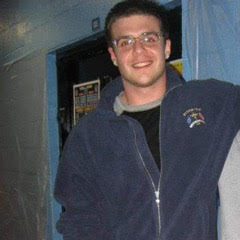Home Guru: Qualifying for a Mortgage: What Next, Blood and Urine Samples?

By Bill Primavera
With the purchase of four homes under my belt, I’ve applied for that many traditional mortgages. There have been many more times when I’ve taken mortgages to either lower my interest rate or tackle major renovations or new business ventures.
I’ve lost count of how many times, but never have I been put through the wringer quite like the last time when I bought my new home at Trump Park Residences in Shrub Oak.
During the first round, I went through the humiliation of being turned down flat because, I am told, I am self-employed and was holding on to my primary residence, which already holds a hefty mortgage. The residence has served throughout my career as a piggy bank to finance one new business venture after another.
The first mortgage lender, recommended by my selling agent, wasn’t as resourceful as he might have been. But the second one, Richie Vicinanza of Homestead Funding Corp., was my lucky charm and got me qualified. Still, the paperwork was astounding. Each time Vicinanza would ask me for more documentation, I would joke with him and eventually asked, “What next, a blood and urine sample?”
But Vicinanza never lost patience with my insolence and saw me through the mortgage commitment and happy purchase of my new home.
What is it that keeps the mortgage industry so distanced from its homebuyers and so difficult to deal with? I asked my two closest buddies in the business to comment about it. Beside Vicinanza, I asked that question of Paul M. Menga, who heads up the mortgage division of the agency where I hang my hat, William Raveis Mortgage.
“I have been in the business for about 10 years now and the only significant differences I have noticed in qualification is with self-employed borrowers,” Menga said. “They tend to have the most difficulty qualifying for a mortgage but it’s still not impossible if you know what you are doing, have the right lenders at your disposal and do your up-front homework to try and address all possible hurdles that you might face down the road.
“There has definitely been an increase in documentation required to secure a mortgage these days, but that is actually a good thing for the industry and helps solidify a safe and stable market for the future. Lack of documentation and due diligence were major contributors to the housing industry collapse.”
Basic qualification standards haven’t changed much over the years, Menga said. Prospective borrowers may mistakenly associate increased paperwork with increased difficulty in qualifying, which is not the case.
Menga said there are still low down payment options available, even 0 percent in some cases, so it remains a great time for first-time homebuyers or people who saw their credit suffer during the housing market collapse.
“Regulation standards for mortgage lenders have changed and will continue to change, especially since the financial crisis of 2008,” Vicinanza said. “The industry has been required to conform to new guidelines brought on by the Dodd-Frank Act, which promotes financial institutions’ accountability and consumer protection.”
The most recent implementation, he said, was the Qualified Mortgage guidelines in January 2014, regulated by the Financial Protection Bureau. As a result, mortgages may have pre-closing audits by outside sources and that can delay closings.
Working with a licensed loan originator who is experienced and a lending institution that knows what the requirements are from the beginning of a home financing search can save time. Loans can still be closed within 30 days.
There is talk throughout the industry about loosening lending standards, but lenders are being cautious, Vicinanza said. Recent changes include Fannie Mae reducing the cash-out refinance limit from 85 percent loan-to-value to 80 percent. Meanwhile, Fannie Mae has brought back 97 percent conventional mortgage financing for purchase transactions for first-time homebuyers.
“What people really need to know is that mortgage financing is still readily available and that rates are still at all-time lows,” Vicinanza said. “But we are never sure how long rates will stay at this level. Bottom line: there is no time like the present to purchase a new home or refinance your current mortgage.”
To know more, call either Paul M. Menga of William Raveis at 914-837-9889 or Richie Vicinanza of Homestead Funding Corp. at 914-447-6158.
Bill Primavera is a Realtor® associated with William Raveis Real Estate and Founder of Primavera Public Relations, Inc., the longest running public relations agency in Westchester (www.PrimaveraPR.com), specializing in lifestyles, real estate and development. His real estate site is: www.PrimaveraRealEstate.com and his blog is: www.TheHomeGuru.com. To engage the services of The Home Guru and his team to market your home for sale, call 914-522-2076.

Examiner Media – Keeping you informed with professionally-reported local news, features, and sports coverage.

